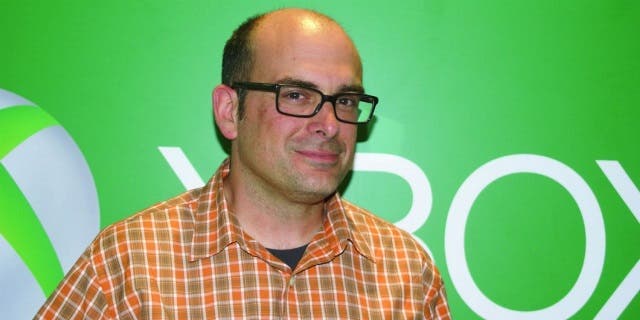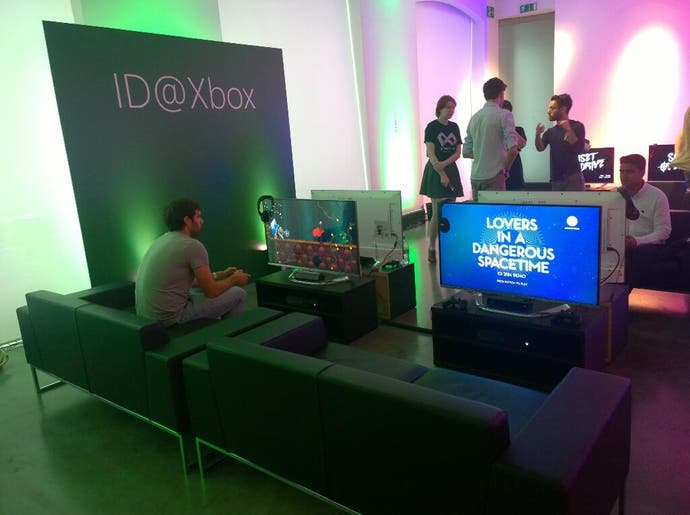What's going on with Microsoft's Xbox One dev kit and launch parity policies?
"If a developer has a question then they can just give us a call."
Microsoft has remained evasive on details of its pledge that all Xbox One consoles will be able to become developer kits.
Yesterday, a senior engineer at Microsoft's Xbox Advanced Technology Group said that the company now had "no plans" to implement the feature.

But Microsoft later told Eurogamer that the comments had been "inaccurate", and that the company was still "committed to ensuring the best possible solution".
Today, at an event in London, we asked Microsoft exec Chris Charla for a clearer picture of what was going on - but he refused to be drawn on what form Microsoft's eventual solution might actually take.
We also asked Charla - the boss of Microsoft's indie developer-focused ID@Xbox scheme - what exactly was going on with the company's much-criticised policy on requiring cross-platform launch parity for Xbox games. Again, details were scarce.
We've reproduced the discussion below.
Microsoft labelled those comments yesterday as "inaccurate". If the idea is still in development, then, do you have any details on time frame, or why it hasn't happened so far?
Charla: I really can't comment on time frame, just that we're committed to that same vision we outlined a year ago - that eventually anybody will be able to make games on their Xbox - [to] use their retail Xbox One to make games on.
You say that the vision remains - does this mean that it will happen but in a slightly different way? Are you rethinking the way it will be implemented?
Charla: [Pause] We remain committed to the vision that people will be able to develop games on retail Xboxes.
Ok, well I imagine it's not an easy thing to do - I'm sure issues regarding security, piracy and so forth may arise as you're trying to build this. Are these the kind of issues that Microsoft has been dealing with?
Charla: Unfortunately I'm not really a developer so I can't really comment on that. I know there is a lot of guys in Redmond who could - technical people, but unfortunately... if you want to talk about basic games I'm your guy, but if you want to talk about console hardware I'm not the guy.

Speaking of basic games, and ID@Xbox, I wanted to ask you about the parity clause that governs if games can launch on Xbox after other platforms. Several indies have come out and criticised the fact it still exists. To what extent is it being enforced, and why?
Charla: I can't talk about it... one thing we do is we don't talk about publishing policies publicly. If a developer has a question then they can just give us a call and we'll explain everything. We'll talk through everything. But I can't comment on it publicly.
Do you think it's right that you can't talk about it? I know this sort of policy has no direct effect on gamers but people like to know what the company they have bought a console from is up to. Wouldn't it be better to just be transparent, and if not, why?
Charla: We definitely want gamers to be behind Xbox and we are excited to bring as wide a variety of games to Xbox as humanly possible. And if developers have questions about any of our policies they can call us and ask about it. But I just can't talk about it publicly - I can't.
The fact Microsoft chose the parity clause to be a policy means it must be something that benefits Microsoft in some way. How does having this policy benefit gamers?
Charla: You could ask us a question about a policy we don't have and I would have to tell you we don't talk about our policies... I can't confirm them or deny them. That's where I am.
---
Last year, Microsoft told Eurogamer that, although the day one parity clause existed, it would still work with game developers which had signed timed-exclusive agreements with PlayStation.
It meant that Vlambeer's Nuclear Throne - a PS4 timed-exclusive - was allowed into the ID@Xbox scheme, although smaller studios such as Australian developer Witch Beam continued to struggle with juggling games that had multi-platform launches.
Sony has ribbed Microsoft over the policy, too. Back in March, PlayStation developer and publisher relations exec Adam Boyes shared a presentation slide on Twitter titled "platforms that you are not allowed to release a game on prior to PlayStation". After that, the slide was blank.
"In the interest of transparency, I want to share our dev clause that lists which platforms you cannot release on," Boyes wrote.









